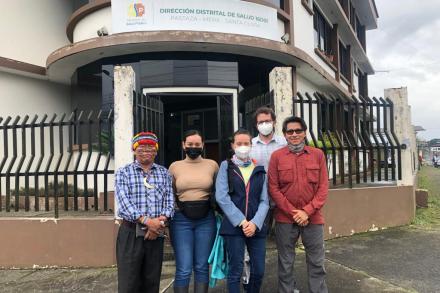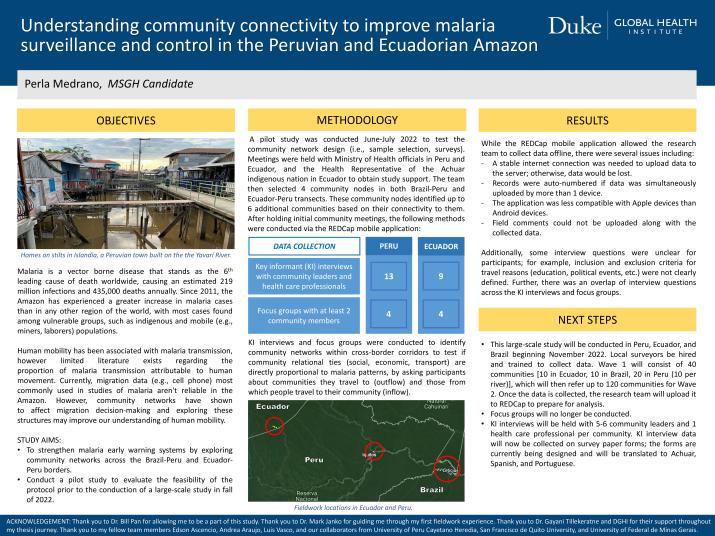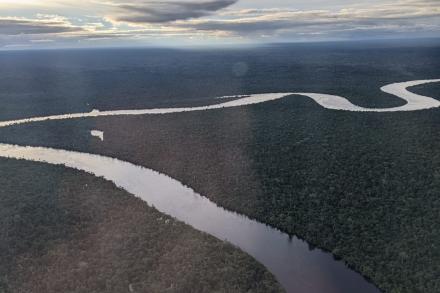Understanding community connectivity to improve malaria surveillance and control in the Peruvian and Ecuadorian Amazon

Project member(s):
-
Perla Medrano
Faculty mentor:
Community partners:
-
Emerging Disease and Climate Change Research Unit, University of Peru Cayetano Heredia
Geography Institute, San Francisco de Quito University
Institute of Geosciences, University of Federal de Minas Gerais
- Feedback? Contact the team
Understanding community connectivity to improve malaria surveillance and control in the Peruvian and Ecuadorian Amazon
Project overview
The Amazon accounts for 90% of malaria cases in the western hemisphere, disproportionately affecting indigenous and mobile populations. Human mobility has been associated with malaria transmission, however reliable migration data of the Amazon is limited. Community networks have been linked to migration decision-making and exploring these structures may improve our understanding of human mobility. This study aims to investigate social networks in communities across the Brazil-Peru and Ecuador-Peru border transects to strengthen malaria surveillance and control in the Peruvian and Ecuadorian Amazon.
A pilot study was conducted June-July 2022 to test the community network design. Data from key informant interviews and focus groups were collected offline via REDCap to identify community networks and test the correlation between community relational ties and malaria patterns. A total of 13 and 9 key informant interviews were conducted with community leaders and health care professionals across 4 nodes in both Peru and Ecuador, respectively. A focus group with at least 2 community members was conducted in each community. Several issues arose when using the REDCap mobile application related to internet connection stability, auto-numbering records, and device compatibility. Further, some questions were unclear for participants and were repeated across interviews and focus groups.
This large-scale study will be conducted in Peru, Ecuador, and Brazil beginning November 2022. Key informant data will be collected on paper forms by local surveyors in a total of 40 Wave 1 communities, from which 120 communities will be selected for Wave 2. Data will be uploaded to REDCap for analysis. Focus groups will no longer be conducted.
Media and resources

Meeting with the Health Representative of the Achuar Nation and Ministry of Health leaders in Ecuador
Last updated on June 26, 2023






